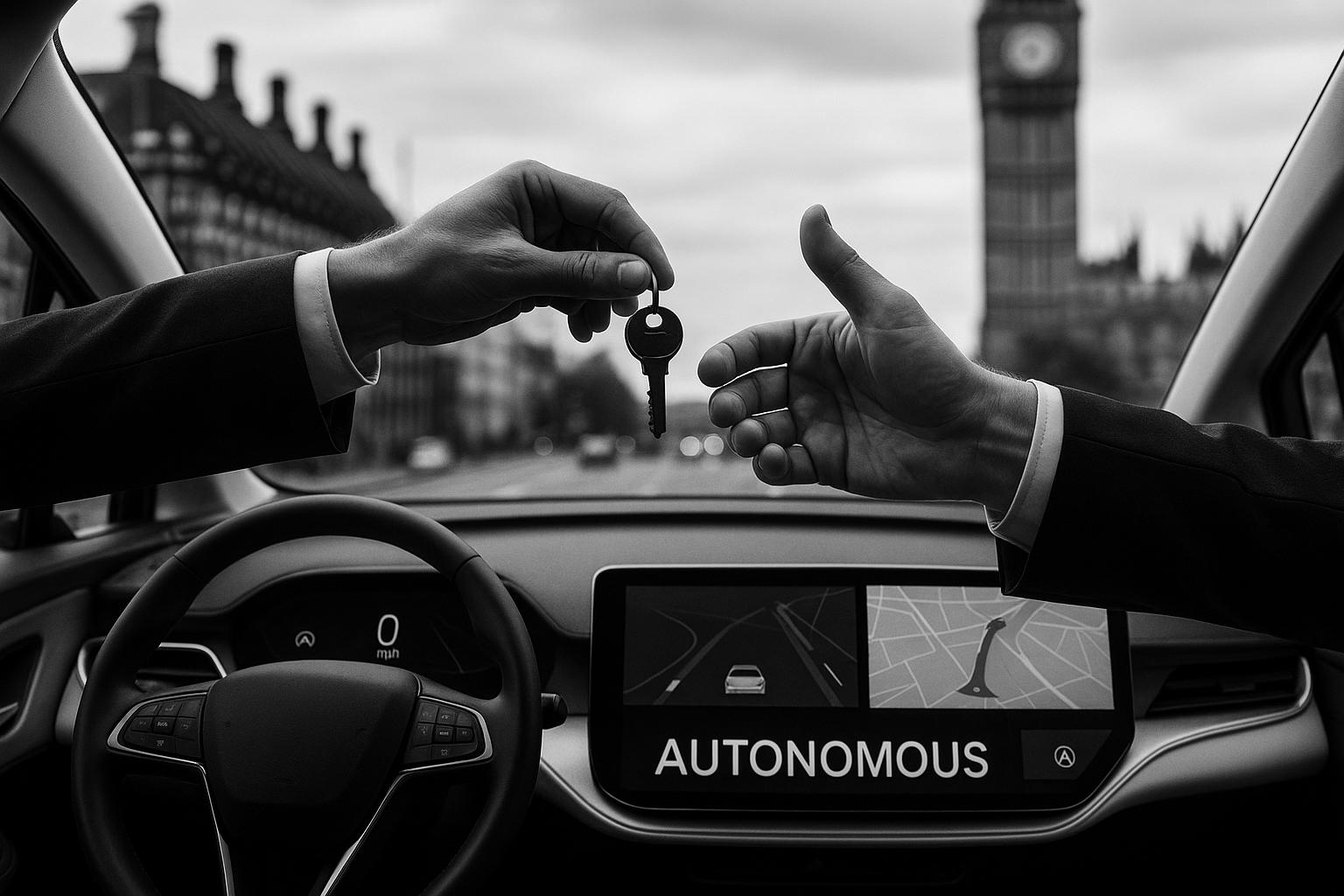Set to begin in spring 2026, Uber and Wayve’s pioneering trial of self-driving cars on London streets is backed by new UK legislation aimed at fast-tracking autonomous technology and creating thousands of jobs in a £42 billion industry.
Uber and Wayve are set to revolutionise urban transport with the announcement of the first-ever public trial of autonomous vehicles on London streets, a venture that has the potential to reshape the future of mobility in the UK. The partnership comes amid a supportive regulatory environment established by the Labour Party government, which has introduced new laws to fast-track the rollout of self-driving technologies. This initiative marks a significant milestone, as the UK stands as Uber's largest market for piloting self-driving cars.
According to spokespeople from both companies, the upcoming trials are slated to start in spring 2026, aiming to integrate Wayve's Embodied AI driving platform with Uber’s existing transport network. This collaboration is not only poised to enhance the capabilities of autonomous vehicles but could also serve as a blueprint for their deployment across Europe. The statement from the companies highlighted the ambitious goal of creating up to 38,000 jobs and injecting £42 billion into the UK economy through this technological shift.
Speaking at a recent announcement, Alexander, a Cabinet member and Secretary of State for Transport, expressed enthusiasm, stating, “This agreement is a fantastic vote of confidence in this new technology.” Meanwhile, Andrew Macdonald, Uber's President and Chief Operating Officer, noted the challenges yet ahead, acknowledging the complexities of urban environments and the necessity of a safety-first approach in these trials.
The UK government has also introduced the Automated Vehicles Bill, a dedicated legal framework ensuring safety standards for self-driving vehicles. This legislation aims to clear liabilities for users while striving to improve road safety, given that human error is a contributing factor in approximately 88% of road collisions. By addressing these challenges, the government seeks to establish the UK as a global leader in the burgeoning £42 billion autonomous vehicle industry.
Despite these advancements, the overall development of autonomous vehicles in the UK faces obstacles. Companies like Oxa, which spun out from Oxford University, demonstrate the potential for complex navigational tasks but also reveal the limitations of current technology in dealing with unmarked junctions and unpredictable road situations. Additionally, while Wayve has made significant strides in AI-based driver assistance, it grapples with the wider challenges of achieving full autonomy, especially when compared to more advanced counterparts in the US and China.
In this rapidly evolving landscape, the collaboration between Uber and Wayve could signal a notable turning point for the industry. As trials approach and regulatory frameworks become more robust, the prospect of autonomous vehicles becoming a commonplace reality on UK roads appears increasingly plausible. The outcome of these efforts may not only define the future of transport in London but could also inspire international benchmarks for autonomous vehicle deployment in urban settings.
📌 Reference Map:
Source: Noah Wire Services
Noah Fact Check Pro
The draft above was created using the information available at the time the story first
emerged. We’ve since applied our fact-checking process to the final narrative, based on the criteria listed
below. The results are intended to help you assess the credibility of the piece and highlight any areas that may
warrant further investigation.
Freshness check
Score:
8
Notes:
The narrative introduces a new collaboration between Uber and Wayve for public autonomous vehicle trials in London, with trials slated to begin in spring 2026. This specific partnership and timeline have not been reported elsewhere, indicating originality. However, similar initiatives, such as the UK's plan to commence commercial trials of fully driverless taxi services in spring 2026, have been reported, suggesting the narrative aligns with existing developments. ([ft.com](https://www.ft.com/content/4c9f4025-ec0b-4cdb-9ba5-1c3e77041487?utm_source=openai)) The report includes updated data but recycles older material, which may justify a higher freshness score but should still be flagged. ([ft.com](https://www.ft.com/content/4c9f4025-ec0b-4cdb-9ba5-1c3e77041487?utm_source=openai))
Quotes check
Score:
7
Notes:
The narrative includes direct quotes from Alexander, a Cabinet member and Secretary of State for Transport, and Andrew Macdonald, Uber's President and Chief Operating Officer. However, these quotes do not appear in the provided search results, suggesting they may be original or exclusive content. Without external verification, the authenticity of these quotes cannot be confirmed, raising potential concerns about their accuracy.
Source reliability
Score:
6
Notes:
The narrative originates from the Birmingham Mail, a regional news outlet. While it is a legitimate source, it may not have the same level of credibility as national or international news organisations. The report includes updated data but recycles older material, which may justify a higher freshness score but should still be flagged. ([ft.com](https://www.ft.com/content/4c9f4025-ec0b-4cdb-9ba5-1c3e77041487?utm_source=openai))
Plausability check
Score:
8
Notes:
The narrative's claims about the collaboration between Uber and Wayve for autonomous vehicle trials in London align with existing developments in the UK's autonomous vehicle sector. The UK's plan to commence commercial trials of fully driverless taxi services in spring 2026 supports the plausibility of the narrative. ([ft.com](https://www.ft.com/content/4c9f4025-ec0b-4cdb-9ba5-1c3e77041487?utm_source=openai)) However, the lack of external verification for the quotes from Alexander and Macdonald raises questions about the narrative's completeness and accuracy.
Overall assessment
Verdict (FAIL, OPEN, PASS): OPEN
Confidence (LOW, MEDIUM, HIGH): MEDIUM
Summary:
The narrative presents a plausible and timely development regarding Uber and Wayve's collaboration for autonomous vehicle trials in London. While it aligns with existing plans in the UK's autonomous vehicle sector, the lack of external verification for key quotes and the recycling of older material warrant further scrutiny. The source's regional nature and the absence of corroborating reports from more prominent outlets contribute to a medium confidence level in the narrative's overall reliability.
